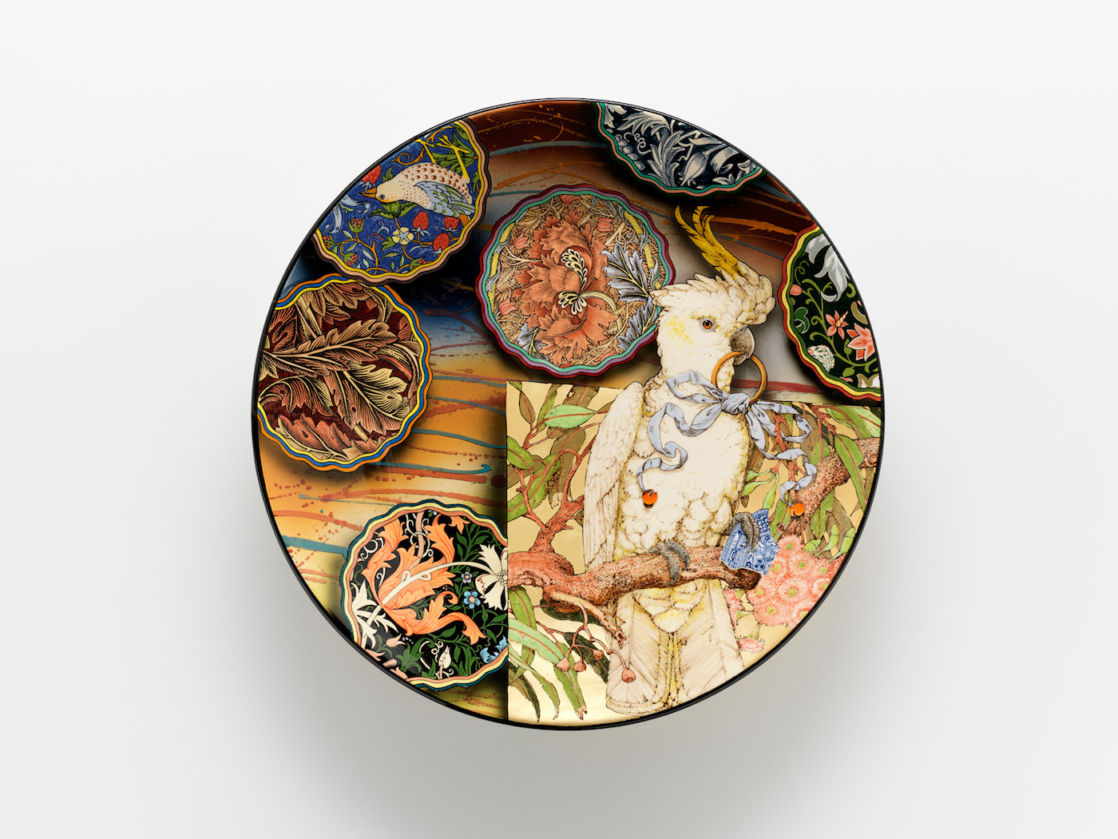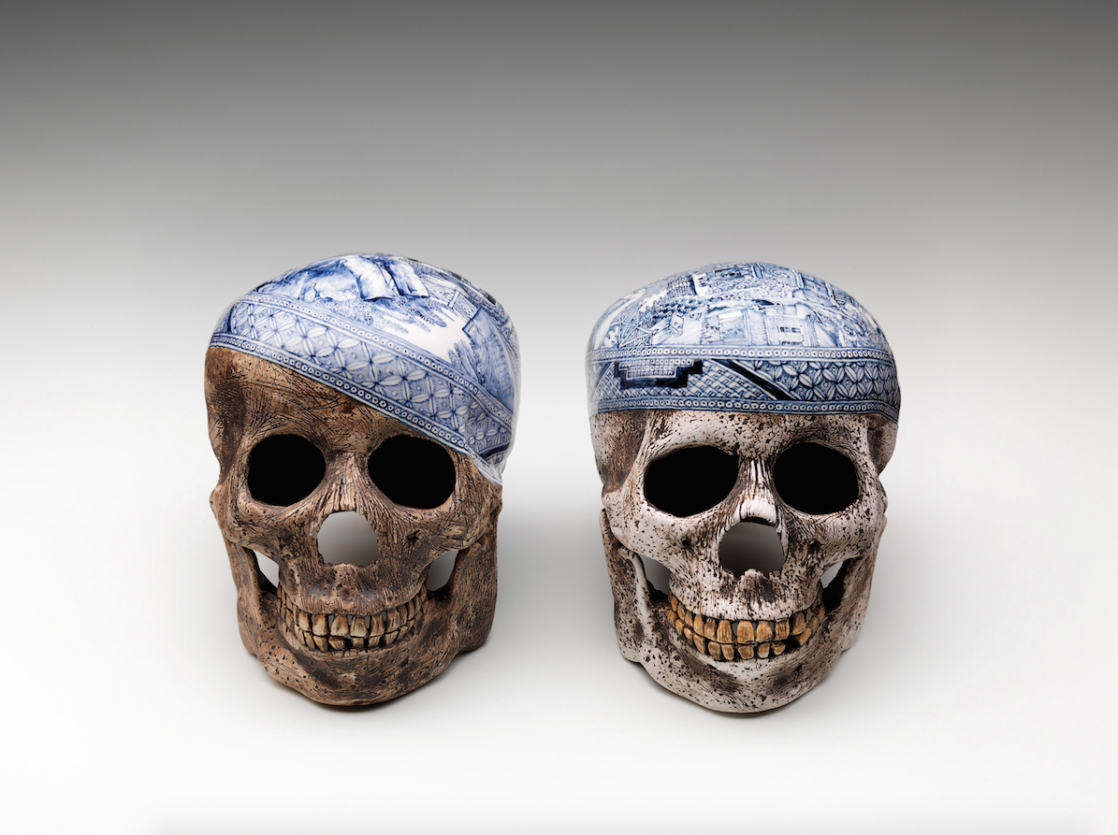Welcome to Ceramic Review
Ceramic Review is the magazine for contemporary and historical ceramics, ceramic art and pottery.
Ceramic Review Issue 326
March/April 2024
Ceramic Review is the magazine for contemporary and historical ceramics, ceramic art and pottery.
March/April 2024
Finding shards of blue and white china as a child led Australian ceramic artist Stephen Bowers on a technical and symbolic journey of discovery. Here he discusses how the fragmented images have influenced his own richly decorated ceramics.

Stephen Bowers - Sulphur Crested Cockatoo Platter, 2018 | Photo by Grant Hancock
The traditions and material qualities of pottery attracted me from an early age. Like many people, I recall discovering fragments of pottery when I was a child, including much blue and white china. These fragments were scattered in the garden and also concentrated in a small ‘midden heap’ (domestic waste site) near a stream that ran through the property of our suburban family home in Sydney. The rich detail and exotic, esoteric nature of the fragmented images on the shards kindled a long-lasting interest, which came to inspire, influence and inform the work I later made.
My original fascination with the pottery shards of my childhood developed over time. This then crystallised around the idea of creating detailed underglaze imagery that was clear, concise and magically resistant to time and the elements. As my work developed, I found I was also responding to the power of the fragmented narratives implied on the shards. This translated into further investigation of techniques such as transfer-ware and hand-painted decoration. Although I utilise aspects of print transfer in my work, it is hand painting in underglaze (with onglaze embellishment) that has come to define my creative approach.
British Willow pattern in particular has had a clear impact on my work. A complex historical style, classic Willow evolved in the 1790s from hand-painted Chinese porcelain originals and overlapped with other Chinoiserie style transfer-ware patterns like Striped Temple and Mandarin. Over the years I have accumulated many examples of Willow and related patterns. Most of these are British transfer-ware plates from the late 18th and early 19th centuries, similar to this one (pictured above) from The Fitzwilliam Museum in Cambridge, which was made in Staffordshire, circa 1910. They form part of my study/ collection and may be found on the walls of our home or stacked in the studio, where I constantly refer to them for inspiration and information. Willow pattern imagery was prominent in my solo exhibition Unearthed at The Scottish Gallery in September 2018, featuring in works such as Shard bowls, Trio: Cups and Caddy and Skulls…
Subscribe to continue reading this article in issue Ceramic Review Issue 298 (July/August 2019).
For more information visit scottish-gallery.co.uk/stephenbowers.

Stephen Bowers - Down On His Luck Art Investors Skull and Blue Willow Harbor Explorer's Skull, 2018 | Image courtesy of The Scottish Gallery